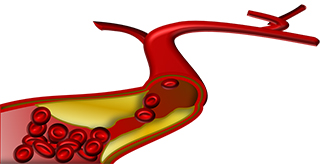
Background Information
Inflammation is a cellular response to chemical damage, physical damage, or infection. It can be part of a healthy restorative process or contribute to further tissue injury and disease when the response becomes chronic. The extent to which environmental exposures ultimately lead to adverse health effects through an inflammatory pathway is unclear, despite growing evidence that the environment may play a role in a wide range of diseases that involve inflammation.
The Division of Translational Toxicology (DTT) has identified atherosclerosis as a candidate endpoint for evaluating potential health effects of environmental chemicals that may act by first causing inflammation. Atherosclerosis represents a significant public health challenge, and it is one of the dominant conditions underlying stroke and cardiovascular disease in general. Environmental exposures with reported associations to atherosclerosis include polycyclic aromatic hydrocarbons, persistent organic pollutants, diesel exhaust particles, particulate matter, phthalates, metals, and secondhand tobacco smoke. For many of these chemicals, there is evidence for an association with both inflammation and atherosclerosis.
DTT is conducting a systematic review to evaluate whether environmental substances contribute to inflammation that leads to atherosclerosis and to evaluate key biomarkers of the associated inflammation. During scoping activities, polycyclic aromatic hydrocarbons were identified as a focus for the evaluation.


